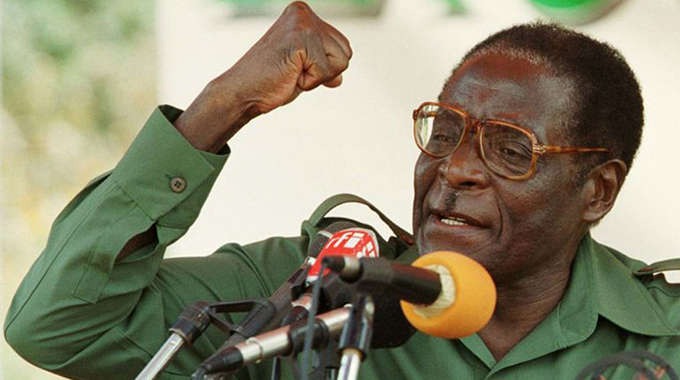Editorial Comment – African unity: Lessons from Mugabe

As Africa mourns the death of its iconic Pan Africanist Cde Robert Gabriel Mugabe last week, its new crop of leaders should learn important lessons derived from his thinking.
One of those lessons is Cde Mugabe’s emphasis on African unity, which he viewed as necessary for the development of the continent.
Throughout his life, especially from the early days of his involvement in the liberation struggle, most of Cde Mugabe’s speeches were centred on African unity.
Internally, this quest was manifested in the way he managed to unite Zimbabweans to focus on a common purpose of developing the country.
On numerous occasions, Cde Mugabe would emphasise that Zimbabwe is a huge entity with different players who are making it tick.
His stance was simply that the country is made up of different tribes which have their own cultures, but these make up one entity called Zimbabwe. He would also use the same talk about Africa, emphasising that with so many countries making the continent, it should not be lost to anyone that they make one entity called Africa.
Apart from pushing for African unity, Cde Mugabe would always defend the continent at international gatherings such as the United Nations General Assembly. He would confront the continent’s detractors, telling them openly to leave the continent alone to chart its own developmental path without interference.
It was clear that Cde Mugabe’s desire was to see a totally independent Africa that controls its resources and use them to develop its people.
This is a vital lesson to African leaders who should realise that with neo-colonialism hovering above their heads, they cannot make meaningful progress. To totally defeat imperialism, Cde Mugabe always implored African leaders to be united and speak with one voice against the vice.
In advocating for unity, Cde Mugabe was following the footsteps of African legends like the late Ghanaian President Kwame Nkrumah.
In fact, he had become a link between his generation of African leaders and that of the likes of Nkurumah.
Apart from speaking about African unity, Cde Mugabe did not hesitate to help fellow Africans in times of need. After independence in 1980, Zimbabwe was actively involved in ensuring that other African countries like South Africa and Namibia were free. He played a big role in ending post-independence conflicts in Mozambique, Angola and the Democratic Republic of Congo.
Zimbabwe has its armed forces scattered across Africa to help with peace-keeping efforts and avoid recurrence of conflicts. Following Cde Mugabe’s demise, Africa is clearly clamouring for a new crop of leaders who stand for the continent without caring much about the consequences.
Most of the problems that faced Zimbabwe during Cde Mugabe’s time were directly as a result of the respond by Western countries to his stance on African unity.
A united Africa is definitely not in the interest of the imperialists, and this explains why they react ruthlessly to anyone who dare propagated such a stance. We all know that Libyan leader Muammar Gaddafi was eliminated with the aid of Western countries because of his persistent calls for a united Africa.
Analysts have also noted that there was a Western hand in Nkrumah’s death because of his stance on African unity. They failed to eliminate Cde Mugabe for calling for African unity, but they made his country and people suffer through illegal sanctions that retarded economic growth.
Cde Mugabe wanted the plunder of African resources by foreign powers to stop so that the continent can fully benefit. Without unity, Cde Mugabe would always implore the African leaders, the plunder would continue as the foreign powers exploit the weaknesses caused by divisions.
The rousing reactions from African leaders to Cde Mugabe’s death clearly indicate that his principles were at the core of the continent’s survival. Cde Mugabe’s stance was always in sync with the objectives of the African Union which are:
(a) to achieve greater unity, cohesion and solidarity between African countries.
(b) to defend the sovereignty, territorial integrity and independence of its member States.
(c) to accelerate the political and social-economic integration of the continent.











Comments